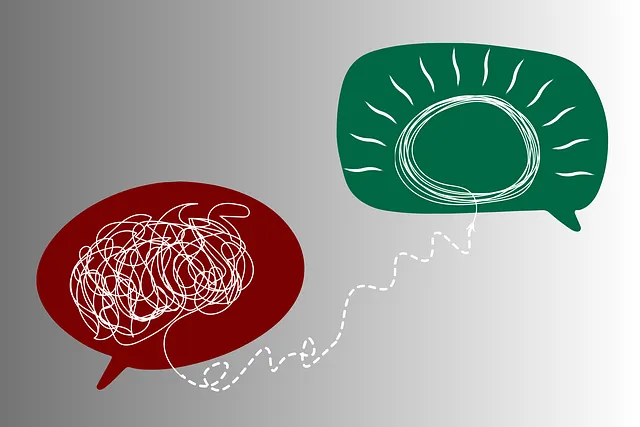Mental health advocacy, as demonstrated by Golden Kaiser Mental Health Programs, is a transformative force that raises awareness, challenges stigma, and promotes understanding for individuals with mental illness. Their comprehensive approach includes crisis intervention, mental wellness coaching, and self-awareness exercises, empowering people to manage stress, cultivate emotional intelligence, and prioritize self-care. Effective advocacy requires a multi-faceted strategy involving community engagement, collaboration with institutions, media campaigns, technology, and peer support networks. Building community support through grassroots initiatives normalizes conversations about mental well-being and fosters inclusive environments. Measuring impact through data-driven methods ensures that programs like Golden Kaiser's remain aligned with recipient needs and continue to improve service delivery.
Mental health advocacy initiatives play a pivotal role in fostering awareness and breaking down stigma. This article explores key aspects of this vital work, offering insights into how organizations like Golden Kaiser Mental Health Programs provide comprehensive support. We delve into effective strategies for advocacy, the importance of community engagement, and methods to measure the impact of mental health campaigns. By understanding these elements, we can collectively drive positive change in mental healthcare access and support.
- Understanding Mental Health Advocacy: The Role in Creating Awareness
- Golden Kaiser Mental Health Programs: A Comprehensive Overview
- Strategies for Effective Mental Health Advocacy Initiatives
- Building Community Support: Engaging at the Grassroots Level
- Measuring Impact: Assessing the Success of Mental Health Advocacy Campaigns
Understanding Mental Health Advocacy: The Role in Creating Awareness

Mental health advocacy plays a pivotal role in shaping societal perceptions and fostering support for individuals grappling with mental illness. It involves raising awareness, challenging stigma, and promoting understanding to ensure people receive the care they need. Advocacy initiatives like those offered by Golden Kaiser Mental Health Programs are instrumental in this process. Through comprehensive programs designed to enhance mental health education, these initiatives equip individuals with coping skills development and crisis intervention guidance.
By integrating various strategies, including community engagement, policy reform, and direct support services, mental health advocacy creates a more inclusive environment where those facing challenges can thrive. It encourages open conversations about mental well-being, enabling people to recognize signs, seek help early, and access appropriate resources. This multifaceted approach not only benefits individuals but also strengthens communities by promoting resilience and overall mental health literacy.
Golden Kaiser Mental Health Programs: A Comprehensive Overview

The Golden Kaiser Mental Health Programs stand as a beacon of hope and support for individuals navigating mental health challenges. Designed to be comprehensive and accessible, these programs offer a multi-faceted approach that addresses various aspects of mental wellness. One of their key strengths lies in the integration of Crisis Intervention Guidance, providing immediate assistance during acute episodes while fostering long-term resilience.
Beyond crisis management, Golden Kaiser invests heavily in Mental Wellness Coaching Programs and Self-Awareness Exercises. These initiatives empower individuals with valuable tools to manage stress, cultivate emotional intelligence, and promote self-care. Through structured coaching and mindful exercises, participants gain insights into their mental processes, enabling them to take proactive steps towards improving overall well-being.
Strategies for Effective Mental Health Advocacy Initiatives

Mental health advocacy initiatives require a multi-faceted approach to be truly effective. Firstly, Golden Kaiser mental health programs focus on holistic strategies that address the social, economic, and cultural determinants of mental health. This includes community engagement, where advocates work with local organizations to foster mental wellness coaching programs and emotional intelligence development. By collaborating with schools, workplaces, and healthcare providers, these initiatives can reach a broader audience, breaking down stigma and promoting early intervention.
Additionally, integrating mental health awareness campaigns into everyday life through media, social events, and educational workshops is vital. These activities should be designed to provide accurate information about mental illness, normalizing conversations around mental wellness. Leveraging technology, such as digital platforms for peer support networks, can further enhance access to resources and create a sense of community. Moreover, mental wellness coaching programs development should prioritize the training of diverse professionals, ensuring that support is available in various languages and cultural contexts.
Building Community Support: Engaging at the Grassroots Level

Building community support is a cornerstone of mental health advocacy initiatives, particularly when focusing on programs like Golden Kaiser Mental Health Initiatives that aim to create sustainable change. By engaging at the grassroots level, we can foster an environment where open conversations about mental well-being become normalized. This involves empowering individuals to take charge of their emotional regulation and encouraging peer support networks that provide a sense of belonging.
Community engagement strategies such as workshops on burnout prevention strategies for healthcare providers and self-awareness exercises can help cultivate resilience and reduce stigma. These initiatives not only equip people with practical tools for managing stress and anxiety but also create safe spaces where individuals feel comfortable discussing their experiences without fear of judgment, ultimately contributing to a more supportive and inclusive society.
Measuring Impact: Assessing the Success of Mental Health Advocacy Campaigns

Measuring impact is a crucial aspect of evaluating the success and effectiveness of mental health advocacy campaigns. It involves assessing the changes brought about by these initiatives, both in terms of awareness and behavioral shifts within targeted communities. By employing robust measurement tools and methods, advocates can gain valuable insights into what works best and identify areas for improvement. This data-driven approach ensures that mental health programs, such as those designed by Golden Kaiser, are aligned with the needs and preferences of their recipients.
One effective strategy is to measure both the reach and engagement of advocacy campaigns. This includes tracking the number of people reached through various channels, such as social media or community events, as well as gauging levels of participation in educational programs like Mental Health Education Programs Design. Additionally, assessing changes in attitudes and behaviors related to mental health, for instance, through surveys or focus groups, can provide a comprehensive understanding of the campaign’s impact. Fostering positive thinking and coping skills development is often at the core of these initiatives, and evaluating their success contributes to continuous improvement and enhanced service delivery.
Mental health advocacy initiatives, such as those offered by Golden Kaiser mental health programs, play a pivotal role in fostering awareness and breaking down stigma. By implementing effective strategies that engage communities at the grassroots level, we can significantly enhance support for individuals facing mental health challenges. Measuring the impact of these campaigns is crucial to identifying successful approaches and ensuring ongoing progress in this vital area.






